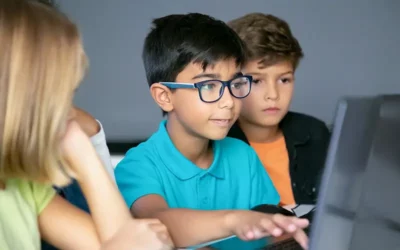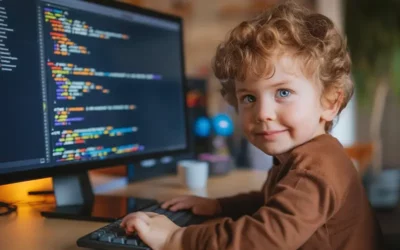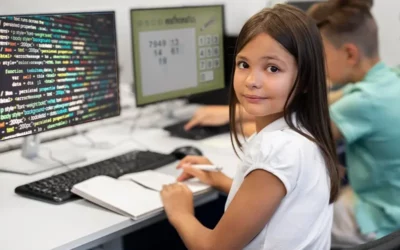Educational toys play a crucial role in the development of 3-year-olds, fostering their cognitive, social, and emotional growth during this critical early stage.
Through interactive and engaging play, these specially designed toys stimulate curiosity, enhance problem-solving skills, and promote learning, making them an indispensable tool for a child’s holistic development.
In this brief article, we will explore the significance of educational toys in shaping young minds and the myriad benefits they offer for 3-year-olds’ overall progress.
Table of contents
Benefits of Educational Toys for 3-Year-Olds
Educational toys play a crucial role in a child’s development, especially during their formative years. For 3-year-olds, these toys offer a range of benefits that lay the foundation for their future growth. Let’s explore some key advantages:
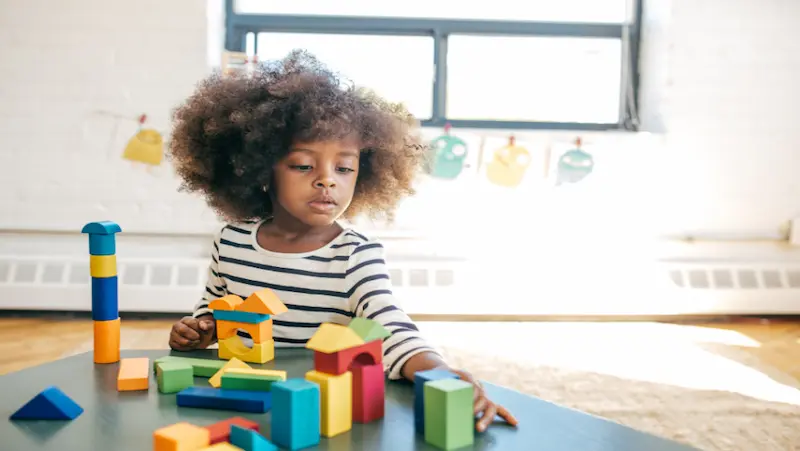
1. Cognitive Development: Educational toys engage young minds in problem-solving activities, puzzles for kids, and online games for kids that promote critical thinking. As they explore and manipulate these toys, they sharpen their cognitive skills and develop a better understanding of cause-and-effect relationships.
2. Fine and Gross Motor Skills: Educational toys help 3-year-olds improve their physical coordination by encouraging them to grasp, stack, and move objects. These activities for kids contribute to the development of fine and gross motor skills, which are essential for daily tasks and overall physical development.
3. Language and Communication: Through interactive educational toys, children can enhance their verbal and social abilities. Engaging in pretend play with dolls, action figures, or toy sets fosters language development, as they narrate short stories for kids and engage in imaginative conversations.
4. Creativity and Imagination: Educational toys spark creativity and imagination in 3-year-olds. Whether it’s building with blocks, drawing for kids, or engaging in pretend play, these activities encourage children to explore their creativity and think outside the box.
Types of Educational Toys for 3-Year-Olds
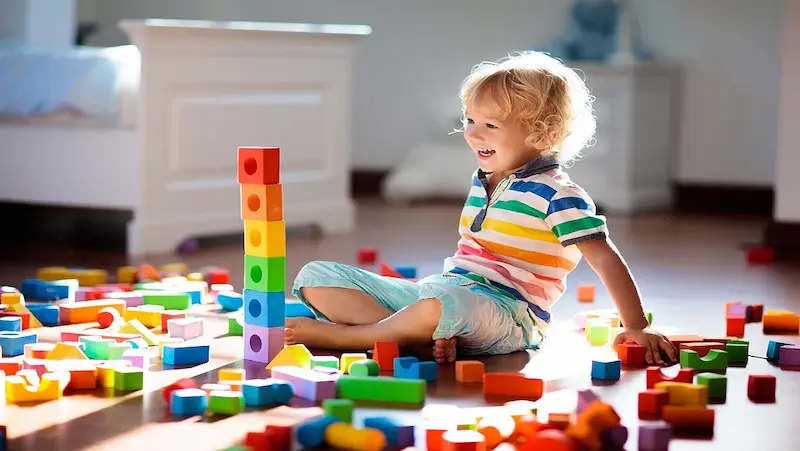
Building Blocks and Construction Sets: Building Structures and Skills
Building blocks and construction sets are more than just fun games for kids for toddlers; they play a crucial role in their development. For 3-year-olds, these toys offer an array of benefits. As they stack blocks and create structures, they enhance their motor skills and hand-eye coordination.
Shape Sorters and Puzzles: Exploring Shapes and Patterns
Shape sorters and puzzles for kids are fantastic tools for introducing children to the world of shapes and patterns. At the age of 3, toddlers are eager to learn and absorb information quickly. These toys provide an engaging way to improve their cognitive skills, spatial awareness, and logical thinking. Through trial and error, kids understand how different shapes fit into corresponding holes, honing their problem-solving abilities.
Educational Board Games: Fun Learning in a Group Setting
Board games for kids designed for educational purposes offer tremendous benefits for 3-year-olds. As they engage in gameplay, children learn valuable social skills like taking turns, sharing, and following rules. These interactive toys encourage cooperative play, making them ideal for group settings and family bonding.
Art and Craft Supplies: Nurturing Artistic Expression and Fine Motor Skills
Art hub for kids and craft supplies opens a world of creativity for 3-year-olds. From scribbling with crayons to molding clay, these activities nurture their artistic expression and imagination. While they create colorful masterpieces, children also refine their fine motor skills, improving hand dexterity and control.
STEM Educational Toys for 3-Year-Olds
In the early years of a child’s life, their curiosity knows no bounds. As parents and caregivers, we have a unique opportunity to nurture their inquisitive minds and pave the way for a strong foundation in science, technology, engineering, and mathematics (STEM).
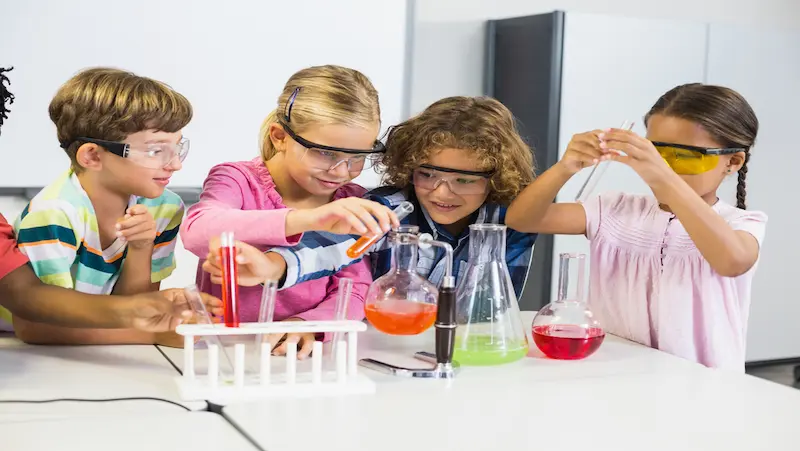
Science Kits for Kids: Introducing Simple Scientific Concepts
Science kits for kids offer a hands-on approach to learning and allow young minds to grasp basic scientific principles in a playful and engaging manner. These kits often come with easy-to-follow instructions and child-safe materials to conduct exciting experiments.
Math Manipulatives: Early Math Concepts Made Fun
Math can be an abstract subject, but math manipulatives are here to make it enjoyable and tangible for young learners. These toys come in various shapes and colors, helping children understand fundamental math concepts such as counting, sorting, and basic arithmetic.
Musical Instruments and Sound Toys
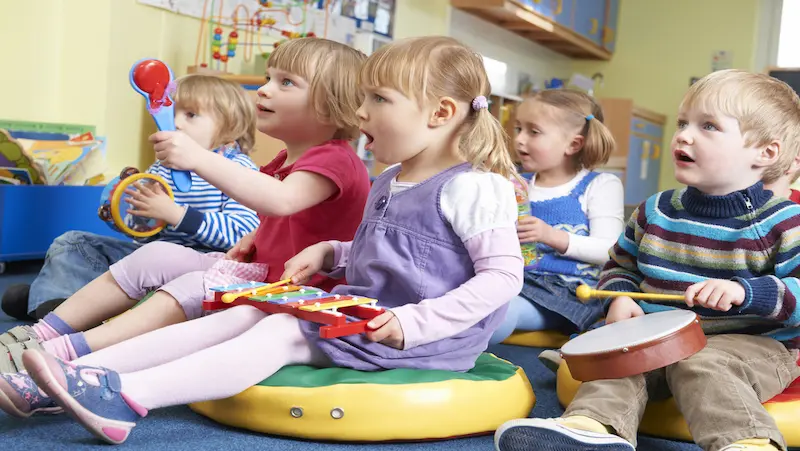
Musical Exploration: Introducing Rhythms and Sounds
In the early stages of a child’s development, exposure to music and sounds plays a crucial role in fostering creativity and cognitive development. Musical exploration through age-appropriate instruments and sound toys can be an exciting and enriching experience.
Children are naturally drawn to the rhythmic patterns and melodies they hear in their surroundings. By introducing them to simple musical instruments like tambourines, shakers, and drums, we open a world of possibilities for them to discover and create their own rhythms.
Sound Puzzle Boards: Learning through Auditory Cues
Sound puzzle boards are an innovative and interactive way to engage young minds while enhancing their auditory perception. These engaging toys combine the excitement of problem-solving with the joy of discovering sounds.
In a sound puzzle board, each puzzle piece emits a unique sound when correctly placed on the board. This auditory feedback not only reinforces the concept of shapes and colors but also sharpens a child’s listening skills.
Parental Involvement and Educational Toys
When it comes to our children’s education, parental involvement plays a crucial role in shaping their learning journey. One powerful way to engage with our kids and foster a love of learning is through educational toys.
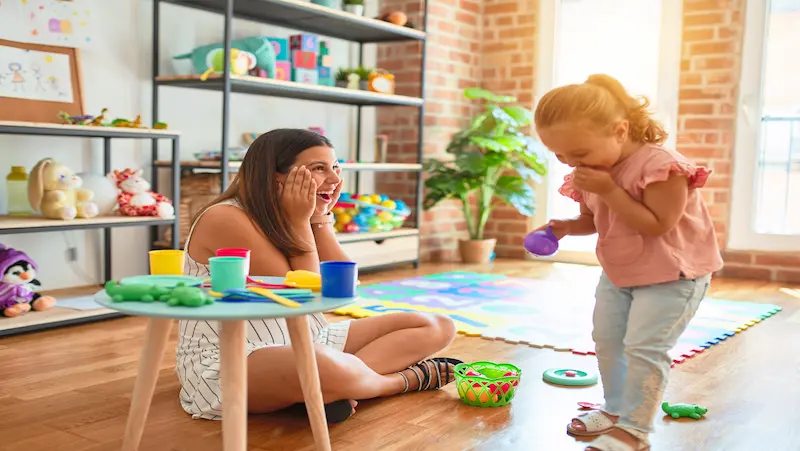
Engaging with Educational Toys: Learning Together as a Family
Educational toys are not only fun factsfor kids but also serve as excellent tools for interactive learning experiences. By actively participating in playtime with our children, we can enhance their cognitive and motor skills while building a stronger parent-child bond.
As parents join in the play, we can provide guidance and support, reinforcing key concepts and helping our kids grasp new knowledge. This shared learning experience strengthens communication and creates a positive learning environment at home, where children feel encouraged to ask questions and seek knowledge.
Encouraging Independent Play: Fostering a Love of Learning
While parental involvement is essential, it’s equally important to encourage independent play. Educational toys can be a catalyst for nurturing a child’s creativity and self-discovery. When children engage in unstructured playtime, they have the freedom to explore ideas, solve problems on their own, and build confidence in their abilities.
By offering a variety of educational toys and allowing kids to choose their indoor activities for kids, we empower them to follow their interests and passions. Independent playtime fosters a love of learning, as children become active seekers of knowledge rather than passive recipients.
Conclusion
In conclusion, selecting the best educational toys for 3-year-olds is crucial for their cognitive and physical development. By engaging them with age-appropriate, stimulating toys, we can foster their creativity, problem-solving skills, and overall growth during this critical stage of early childhood.
Encouraging learning through play sets a strong foundation for their future learning experiences and helps them explore the world with curiosity and excitement.
Join the revolution in education with Brightchamps. Our courses in robotics, coding, and financial literacy empower kids to become confident and capable learners.
Frequently Asked Questions
A1. Look for toys that promote problem-solving, creativity, and motor skills development. Educational toys often have age-appropriate learning elements and encourage exploration.
A2. Affordable options for educational toys include building blocks, puzzles, art supplies, epic book for kids, and simple science kits.
A3. Educational toys can complement traditional learning methods, but they may not entirely replace structured education. A balanced approach is usually the most effective.
A4. Quality matters more than quantity. A few well-chosen educational toys that cater to their interests and development are better than an overwhelming number of toys.
Q5. Are all electronic educational toys beneficial for children?
A5. Not all electronic educational toys are equally beneficial. Choose ones that engage children actively, promote critical thinking, and limit excessive screen time.

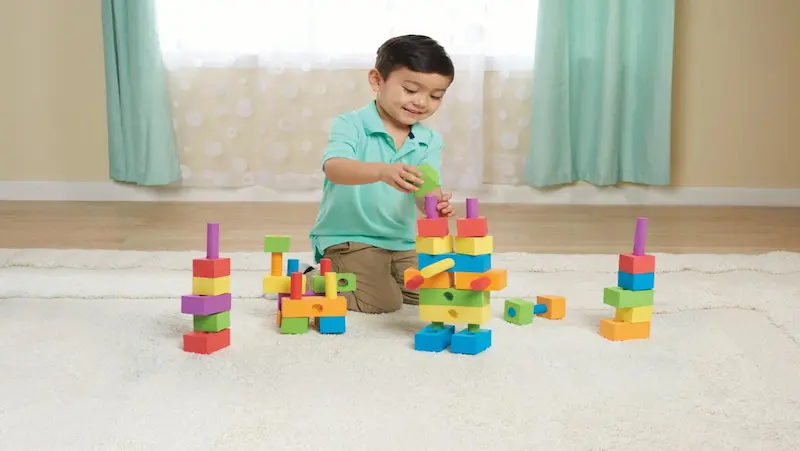
 We are an army of educators and passionate learners from BrightChamps family, committed to providing free learning resources to kids, parents & students.
We are an army of educators and passionate learners from BrightChamps family, committed to providing free learning resources to kids, parents & students.










